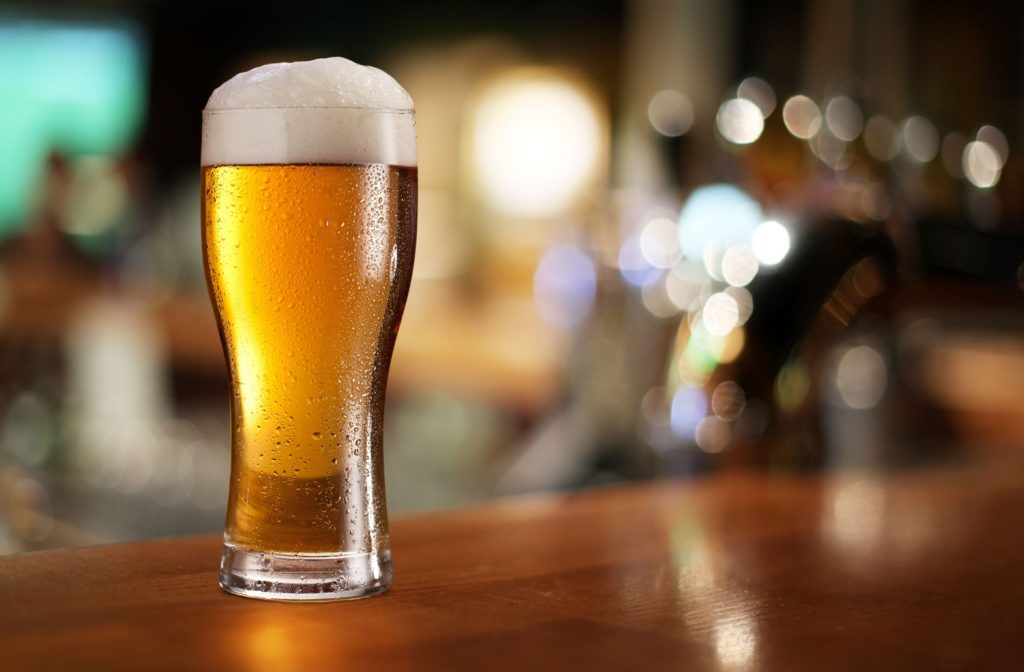We’ve all heard the health contentions about alcohol, from the liver to the heart, but what about our eyes? Whether it’s a social drink after work, a celebratory glass of champagne, or a leisurely cocktail on the weekend, there’s a larger question: can alcohol affect our eyesight long-term? The answer is yes, it can because there’s a link between alcohol consumption and an increased risk of certain eye diseases and conditions like cataracts or macular degeneration.
It’s important to note that this connection doesn’t mean you need to give up ever having another alcoholic beverage again. You can still enjoy a drink in several ways while maintaining good overall health, including healthy eyes.
We’ll detail a few tips in this blog, but ultimately, you should talk to your eye doctor about what’s right for you because they take the whole picture into account, such as your overall health, eye health, and other risk factors you may have.
Alcohol’s Relation to Eye Diseases & Conditions
There are a couple of specific ways that alcohol can affect your eyes.
Cataracts
Cataracts occur when the eye’s lens becomes cloudy, leading to blurred vision and vision loss if left untreated. Alcohol, especially when consumed in large quantities over a long period, can significantly increase the risk of cataracts.
Macular Degeneration
Macular degeneration is a condition that affects the middle part of your vision. It’s often linked with aging, known as age-related macular degeneration (AMD). Alcohol could be another risk factor. Recent research suggests that alcohol may increase the risk of some form of AMD depending on the level of consumption.
Long-Term Consequences You Can’t Unsee
Perhaps one of the more sobering aspects of alcohol’s impact on vision is the potential for long-term, progressive damage that can be irreversible.
Progressive Damage to the Optic Nerve
The optic nerve is the fiber pathway that carries visual information from the eye to the brain. It’s a big deal in the visual process. Excessive, chronic alcohol consumption may lead to conditions like toxic or nutritional optic neuropathy, which can severely impair vision.
Alcohol-related damage to the optic nerve is often a result of malnutrition secondary to alcoholism, where chronic nutritional deficiencies—such as lack of vitamin B1 (thiamine), B12, B6, and folate—can lead to optic nerve damage. If the optic nerve is damaged, it can result in color vision defects, a decrease in sharpness, and a decrease in the field of vision, making it difficult to see objects clearly or at a distance.
Short-Term Consequences
Too many drinks can temporarily mess with your vision, making things look a touch fuzzy. But it’s not just the smudged lens of a night of drinking that can affect your eyesight. Alcohol, when consumed or processed by your body, can incite various short-term effects on your vision.
Alcohol is a central nervous system depressant. It slows down the brain’s processing speed, which results in your visual sensory processing also taking a hit. From slow pupil reactions to weakened eye muscle coordination, your peepers aren’t at their peak performance when you’re under the influence. This lag can make judging distances accurately or quickly changing your focus difficult, which is why driving under the influence is a big no-no.

Tips for Healthy Eyes
How much is too much? When it comes to the longevity of your eyesight, the adage of everything in moderation rings true. Optometrists encourage these actions to keep your eyes resilient.
Moderation Is Key
Does this mean you should throw a funeral for happy hour or give up your post-work pint? Not necessarily. Moderation, as dull as it may seem, is key. Limiting alcohol consumption to within the recommended guidelines—no more than 1 drink per day for females and 2 for males—can significantly reduce the risk of alcohol-related eye and health issues.
Prioritize Regular Eye Check-Ups
Regular check-ups with your optometrist can help detect early signs of diseases, and early intervention can halt or slow their progression, potentially saving your vision from a world of darkness. The American Optometrists Association recommends that most adults receive a comprehensive eye exam every one to two years.
Make Healthy Lifestyle Choices
Here’s where the comprehensive vision wellness plan comes into play. Staying physically active and eating a balanced diet rich in vitamins and nutrients can fortify your vision against potential alcohol-related assaults.
Take Care of Your Eyes Today
Like with most things in life, balance is everything. Moderate your consumption and be attentive to your optical health. Remember, the joys of life are to be celebrated, not soaked in excess. Make sure your eyes are well-equipped for the long, colorful horizon ahead. Cheers to clear-sighted sips and brighter futures.
Don’t forget about regular eye exams! Contact our team at Total Vision Rancho Bernardo today to book your next eye exam. We can examine your eyes and answer any questions concerning your long-term eye health.



